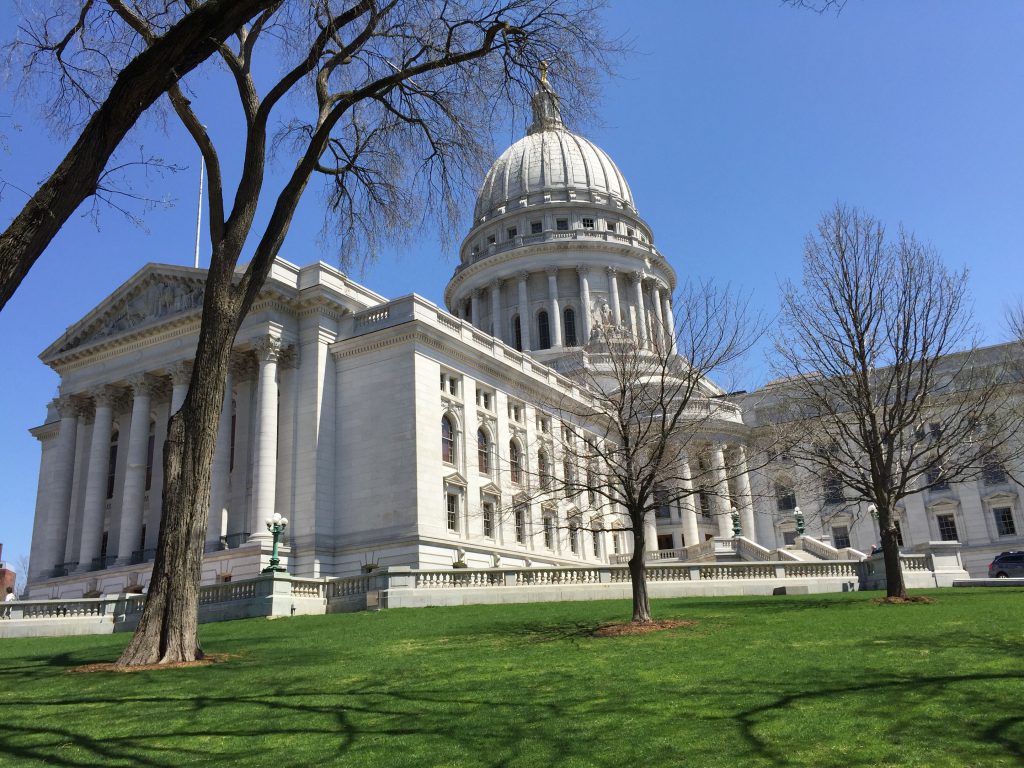PPP Business Expense Tax Break Approved by Committee
Democrats tried to narrow the tax break on expenses paid for with federal relief money.
Democrats on the Legislature’s Joint Finance Committee sought changes Wednesday to more narrowly focus a $450 million state income tax break for businesses that received COVID-19 help from the federal government. But the Republican-controlled committee rejected all of them before sending the measure to the full assembly.
The overall bill, AB-2, primarily consisted of routine, bipartisan changes to the state tax code, mostly to bring it into line with various changes in the federal code.
The most controversial element, however, was formally added to the legislation Wednesday: a measure that allows businesses with grants from the federal Paycheck Protection Program (PPP) to deduct business expenses from their income taxes, even though those expenses were paid for by the tax-free PPP money rather than from taxable income.
That amendment also is in line with federal tax law — a point that some supporters noted after several lawmakers spoke in opposition to the provision.
“There’s good things here, and there’s things that make it easier for people in Wisconsin to do their taxes and advantages that have been set in place by the feds for your tax law,” said Rep. Mark Born (R-Beaver Dam), the other committee co-chair. “And we’re conforming to that.”
Although the expense deduction is allowed on federal business taxes, because of the mid-December Consolidated Appropriations Act (CAA), some analysts have questioned the hit that state revenues would take if the deduction is allowed on state income taxes as well.
Peter Barca, secretary of the Wisconsin Department of Revenue (DOR), has told legislators that allowing businesses to take the deduction on expenses that were already paid for by tax-free federal aid amounts to a “double benefit.”
Democrats on the committee criticized the Republican majority for moving so quickly to add the PPP expense deduction to the otherwise routine Assembly Bill 2 without more deliberation.
“There has been no public hearing since the amendment was introduced,” said Rep. Greta Neubauer (D-Racine).
Democrats offered four amendments to the legislation to narrow the focus of the tax break to businesses that they argued would be more deserving of the largesse while also reducing the revenue shortfall it would create. A fifth amendment would have waived the state income tax on grants from the Wisconsin Economic Development Corp. to small businesses hurt by the COVID-19 pandemic. All five amendments failed on party-line votes, 4-11.
The rejected amendments would have:
- Exempted state grants to small businesses funded by the federal CARES Act from state income taxes, just as the PPP funds are, and also allowed recipients to deduct the business expenses covered by those grants, just as the PPP recipients will be able to do if AB-2 becomes law.
- Denied the PPP tax break for jobs that were subsequently outsourced, to businesses convicted of fraud in collecting PPP funds, and to payday loan businesses;
- Limited the amount of the tax break for businesses receiving $250,000 or more under the PPP program.
“Ninety percent of the businesses in Wisconsin who received a PPP loan, approximately, received less than $250,000,” Neubauer said. “So they would be able to claim the full deduction equivalent to their loss.
Neubauer, along with Rep. Evan Goyke (D-Milwaukee) and Sen. LaTonya Johnson (D-Milwaukee), voted against the final bill.
“I’m voting no today because we could provide better, more meaningful immediate relief to small businesses in Wisconsin that need it,” Goyke said.
“Strong state revenues are a great reason to reduce the tax burden,” Stroebel said in a statement to the Wisconsin Examiner. “Allowing the recognition of expenses while ignoring the taxpayer-funded forgivable PPP loan ‘revenue’ is certainly not standard accounting principles. Only PPP recipients that made money have any state tax liability. Rather than grant profitable PPP benefactors a $457 million tax write-off, I would prefer a more broad and equitable tax reduction for all Wisconsin taxpayers.”
Sen. Jon Erpenbach (D-West Point), the only Democrat to vote for the measure, said he did so after hearing from owners of small businesses who were disappointed by the possibility of having to pay taxes on the underlying expenses that the PPP had covered.
Rep. Tony Kurtz (R-Wonewoc) noted that Wisconsin Democrats in Congress had supported the legislation granting the federal tax break. A sign in La Crosse that he saw after the bill passed in December offered thanks to U.S. Sen. Tammy Baldwin and U.S. Rep. Ron Kind, Kurtz said. “The last I looked, they’re on the other side of the party,” he added, “and they voted to make [expenses deductible on] these PPP loans at the federal level, so I think we need to make this at the state level as well.”
Reprinted with permission of Wisconsin Examiner.






















